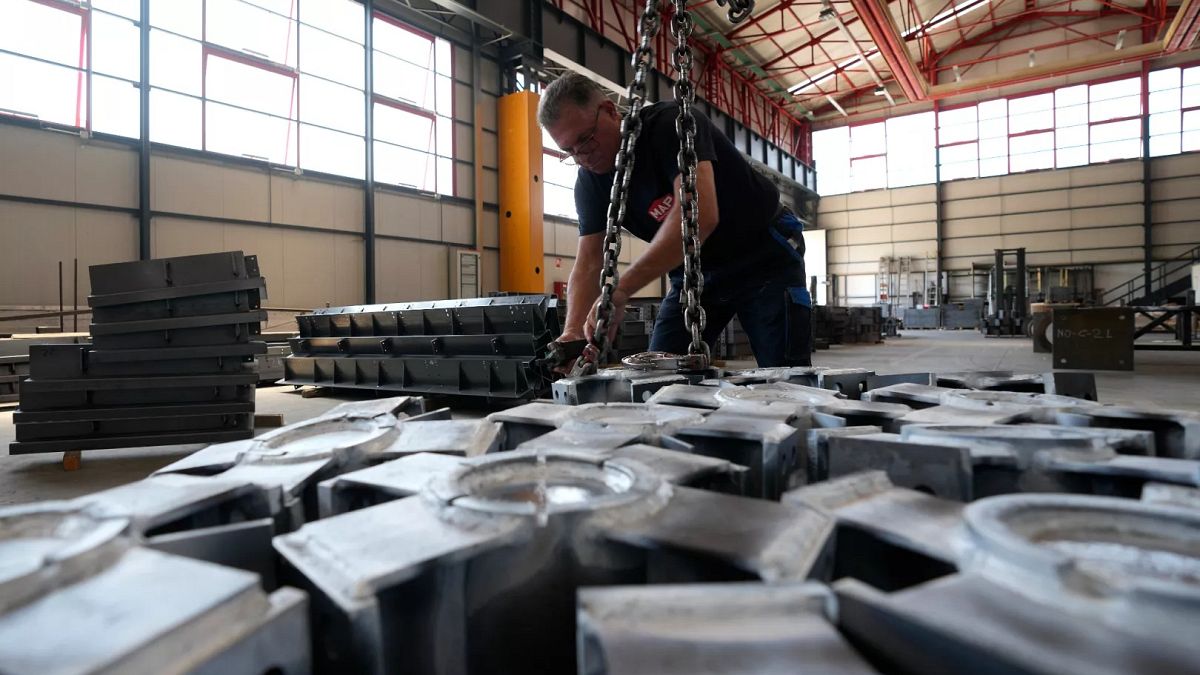Businesses across the EU will see certain obligations eased to help them thrive and contribute to Europe’s competitiveness — at least that is the European Parliament’s pledge.
The European Parliament’s objective is to reduce reporting requirements on sustainability and human rights, as lawmakers voted on Monday to water down the bloc’s corporate due diligence rules.
Only companies with more than 5,000 employees — instead of the 1,000 adopted last year by the EU — and with a yearly turnover of €1.5 billion — instead of €450 million — will be obliged to comply with the bloc’s due diligence law, according to the vote cast by MEPs in the legal affairs committee with 17 votes in favour and six against.
The EU’s corporate due diligence law requires companies to check their supply chains for shady environmental and labour practices, to avoid disasters like Rana Plaza, the Bangladesh garment factory whose collapse in 2013 cost over 1,000 lives.
After its adoption in May 2024, the bloc’s corporate due diligence law drew backlash from several business operators, who claimed it was an onerous burden and harmed the bloc’s competitiveness.
Pressure from Washington, amid ongoing trade discussions, is also seen as a major factor in the EU’s decision to dismantle sustainability rules.
As a result, the European Commission proposed administrative simplifications in February — the so-called Omnibus — which aims to reduce reporting obligations under EU sustainability laws, such as the Corporate Sustainability Due Diligence Directive (CSDDD) and the Corporate Sustainability Reporting Directive (CSRD).
Simplification for predictability
Swedish MEP Jörgen Warborn (EPP), responsible for the due diligence file in the Parliament, said the vote meant predictability for European companies.
Warborn led the legislative file with an iron fist, as the centrist lawmaker threatened to side with the far-right if the left did not make concessions to reach a compromise text, leading to the resignation of Lara Wolters (Netherlands/S&D), the lawmaker co-leading negotiations on the file.
The lobby against the bloc’s sustainability rules has been stiff, with nearly 50 European companies, led by TotalEnergies and Siemens, calling on German Chancellor Friedrich Merz and French President Emmanuel Macron to “abolish” the bloc’s corporate due diligence rules.
US oil and gas giant Exxon Mobil has also been heavily lobbying both US lawmakers and EU institutions to ease these rules, the Centre for Research on Multinational Corporations claimed.
Ann Mettler, former Commission director-general and vice president for Europe at Breakthrough Energy, a network of organisations founded by US tech magnate Bill Gates to accelerate the transition to clean energy, regretted the lack of supportive mechanisms for companies growing, after EU governments struck a first deal in the summer.
“(There are) only punitive (schemes) that assign extra responsibilities to ‘big’ firms, such as additional compliance, complex governance,” Mettler said.
“What is adding insult to injury, however, is first making our companies dangerously dependent on ‘cheap’ made-in-China products and now demanding a squeaky-clean supply chain via (the EU’s corporate due diligence law),” she added.
But not everyone agrees that simplifying crucial rules is a deterrent to competitiveness.
‘False dichotomy’
Former European leaders, such as Finland’s Sanna Marin and the EU’s Josep Borrell, were among the signatories of a letter calling on the bloc to save EU sustainability rules, rejecting the “false dichotomy” between sustainability and social responsibility and efficiency and competitiveness.
“Weakening and delaying sustainability rules carries a price tag we cannot afford. Sustainability isn’t the burden — the burden is not being sustainable”, said Enrico Giovannini, former Italian Minister under Mario Draghi and Enrico Letta’s governments, who also signed the letter.
The Swedish law firm Cirio said the Commission’s proposal to simplify sustainability rules is at odds with EU law as it fails to provide any sort of impact assessment, a claim that was backed by a preliminary legal analysis by Baldon Avocats, commissioned by the non-profit ClientEarth.
Audrey Changoe, trade and investment policy coordinator at the NGO Climate Action Network Europe (CAN), said Monday’s vote was a “clear win for Big Oil”.
“With the scrapped implementation requirements, what’s left is little more than a greenwashing paperwork exercise,” said Changoe.
“EU lawmakers are losing sight of both their democratic duty and the climate reality, siding with fossil fuel giants while ignoring the majority of EU citizens who want stronger climate action,” she added.
While the report, which will kickstart inter-institutional talks, keeps mandatory climate transition plans and maintains a relatively robust due diligence framework for companies, the rise of the company size threshold does not improve the civil liability regime, marking a significant setback for enforcement and corporate accountability.
After Monday’s vote in the Parliament, lawmakers will need to ratify the decision during a plenary session in Strasbourg, likely due on 20 October. Once the full house has cast its vote, negotiations between the Council, the Parliament and the Commission will begin.
Euronews has reached out to Exxon Mobil for comment.
Read the full article here


